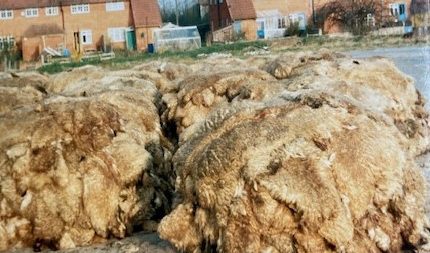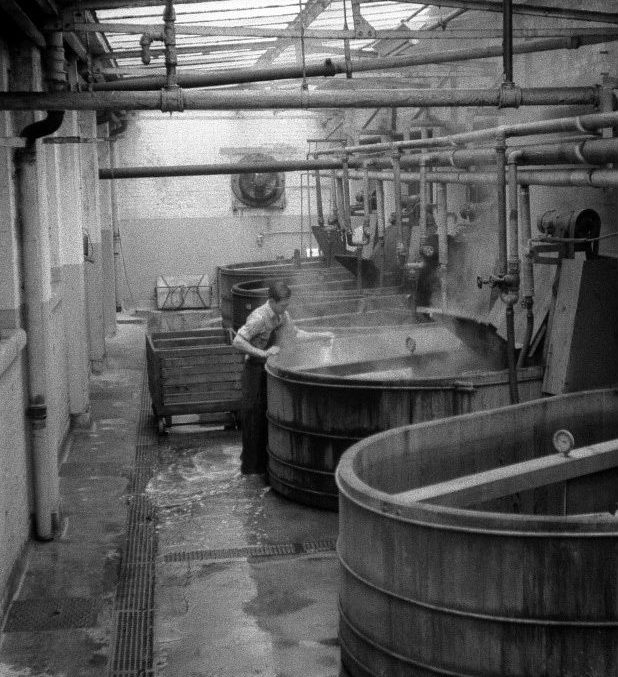You knocked you fingers about and that. Split your nails. But split ‘em good that they ain’t ever grow right again afterwards. There were nothing without burns and that on your hands. It was normal, everyday occurrence.
[Reg, Morlands]
But it wasn’t easy work. When you work at Morlands you didn’t have no energy to do anything else.
[Steve and Reg, Morlands]
My first job was when sheep skins came in from the slaughter house, it was pretty disgusting, they smelt terrible but they had layers of salt in between them to preserve them. It was called rounding – just taking off all the untidy bits, the odd ear, leg. It was pretty gross really! Then you had to put them on a tidier stack and chuck all the unwanted bits in a bin. So that was a bit of a rude awakening!
[Tim, Morlands]

Photo: Charlie Down
The skins were in one place, where they used to come in from the markets, and they used to round ‘em off. All their bits and pieces, legs ‘n arms ‘n hooves. It was a stinky smelly job, know what I mean?
[Terry, Baily’s]
I done most of the heavy work to tell you the truth. I took skins out the paddles, which is cold water and they weren’t just one or two, they were hundreds, hundred and fifty, all according how big they were. Paddles only took so much. That was the heaviest, that was the hardest work, but you know the money in consideration was pretty good. But you had to work for it didn’t you?
[Terry, Baily’s]
Skins used to come in down Glastonbury station, and they brought in this load one day, and when we went in in the morning the whole floor was covered in weevils – all these little insects, horrible bloody things and so they had to fumigate the whole building, get rid of these weevils, yeah I remember that happening one day.
[Jim, Baily’s and Morlands]
And if you dropped behind, you couldn’t never catch it up. But yeah, it was hard work.
[Jim, Morlands]

Photo: John Morland

